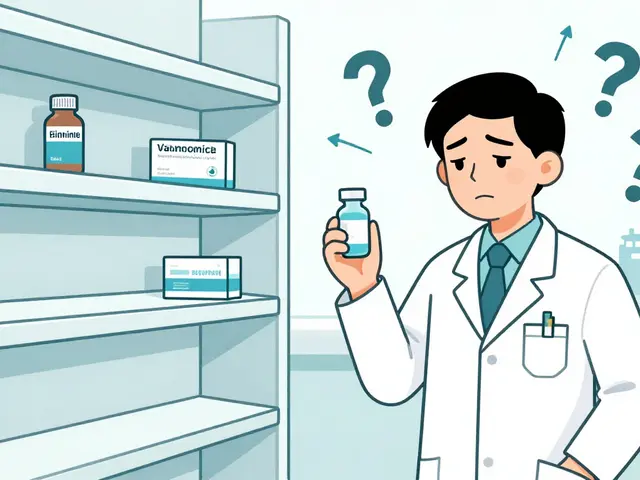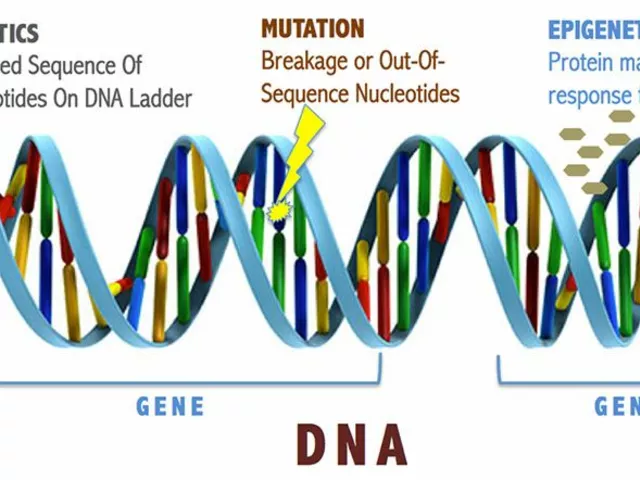The Connection between Ulcerative Colitis and Irritable Bowel Syndrome (IBS)

- Colin Hurd
- 21 May 2023
- 20 Comments
Understanding Ulcerative Colitis and Irritable Bowel Syndrome (IBS)
Before diving into the connection between ulcerative colitis and irritable bowel syndrome (IBS), it is vital to understand these two conditions separately. Ulcerative colitis is an inflammatory bowel disease (IBD) that causes long-term inflammation and ulcers in the digestive tract, specifically in the innermost lining of the large intestine and rectum. Symptoms include abdominal pain, diarrhea, and rectal bleeding.
On the other hand, irritable bowel syndrome (IBS) is a common disorder that affects the large intestine. It is characterized by a group of symptoms, including abdominal pain, bloating, gas, and altered bowel habits, such as diarrhea or constipation. Unlike IBD, IBS does not cause inflammation or ulcers. It is essential to differentiate between these two conditions as they require different approaches to treatment and management.
Overlap of Symptoms: When Ulcerative Colitis Mimics IBS
One of the main reasons for the confusion between ulcerative colitis and IBS is the overlapping symptoms. Both conditions can cause abdominal pain, diarrhea, and a sense of urgency to use the bathroom. Additionally, the intensity of these symptoms may vary over time and can be triggered by similar factors, such as stress or certain foods. This overlap can make it difficult for doctors to differentiate between the two conditions, especially in the early stages of the disease, and may lead to misdiagnosis.
However, there are some key differences between the two conditions. For instance, ulcerative colitis causes visible inflammation and ulcers in the colon, while IBS does not. Moreover, IBS does not increase the risk of colon cancer, while ulcerative colitis does. Blood or mucus in the stool is also more common in ulcerative colitis than in IBS.
Coexistence: Can You Have Both Ulcerative Colitis and IBS?
While ulcerative colitis and IBS are two distinct conditions, it is possible for an individual to have both. Some studies have shown that people with IBD, including ulcerative colitis, are more likely to develop IBS-like symptoms than the general population. This phenomenon is sometimes referred to as "IBD-IBS overlap" or "IBS in the setting of IBD."
The exact reason for this overlap is not entirely understood, but it is believed that the inflammation caused by IBD may make the gut more sensitive to pain and prone to abnormal bowel movements, which can lead to IBS-like symptoms. It is also possible that the two conditions share some common underlying factors, such as genetics or alterations in the gut microbiome.
Diagnostic Challenges and the Importance of Accurate Diagnosis
As mentioned earlier, the overlapping symptoms of ulcerative colitis and IBS can make it challenging for healthcare professionals to accurately diagnose these conditions. However, obtaining an accurate diagnosis is crucial, as treatment and management strategies for these two conditions differ significantly. For example, medications used to treat ulcerative colitis, such as corticosteroids or immunosuppressive drugs, are not typically used for IBS and may even worsen IBS symptoms in some cases.
To differentiate between ulcerative colitis and IBS, doctors may use a combination of tests, including blood tests, stool tests, imaging studies, and endoscopy with biopsy. These tests can help identify the presence of inflammation and ulcers in the colon, which are indicative of ulcerative colitis but not IBS. In some cases, doctors may also use symptom-based criteria, such as the Rome IV criteria for IBS, to help with the diagnosis.
Treatment and Management: Addressing Both Conditions Simultaneously
If you have been diagnosed with both ulcerative colitis and IBS, it can be challenging to manage your symptoms and achieve a better quality of life. However, by working closely with your healthcare team and adopting a personalized treatment plan, you can effectively address both conditions simultaneously.
The primary goal of ulcerative colitis treatment is to reduce inflammation, which can help alleviate IBS-like symptoms. This can be achieved through medications, such as anti-inflammatory drugs, corticosteroids, and immunosuppressants. On the other hand, IBS treatment focuses on relieving symptoms through dietary modifications, stress management, and medications that target specific symptoms, such as antispasmodics for abdominal pain or laxatives for constipation.
In some cases, treating one condition may improve symptoms of the other. For example, effectively managing ulcerative colitis inflammation may lead to a reduction in IBS-like symptoms. Similarly, adopting stress-reduction techniques and making dietary changes to manage IBS symptoms may also benefit your ulcerative colitis. By addressing both conditions simultaneously, you can improve your overall well-being and pave the way for a healthier, happier life.




Comments
darwin ambil
Wow, this article really breaks down the overlap between UC and IBS – super helpful! 👍
I totally get why patients get confused, the symptoms are practically twins. Keep the info coming! 😊
May 21, 2023 AT 10:03
Kelvin Van der Maelen
Honestly, this reads like a textbook rewrite. The whole "overlap" thing is just doctors being lazy. If you have UC, stop blaming IBS for everything.
May 26, 2023 AT 01:10
Joy Arnaiz
While the article is informative, it omits the possibility that pharmaceutical companies may be downplaying the long‑term risks of immunosuppressants. One must remain vigilant regarding hidden agendas.
May 30, 2023 AT 16:17
Christopher Eyer
Sure, the piece is nice an' all, but it forgets to mention that a lot of the studies are funded by big pharma. Also, I doubt the "microbiome" hype does any real good. Gotta stay sceptical.
June 4, 2023 AT 07:23
Mike Rosenstein
Great summary of a complex topic. For anyone navigating both diagnoses, remember that a multidisciplinary team-gastroenterologist, dietitian, and mental‑health professional-can make a huge difference in quality of life.
June 8, 2023 AT 22:30
Ada Xie
Note: "IBD‑IBS overlap" should be hyphenated, and "Rome IV criteria" must be italicized.
June 13, 2023 AT 13:37
Stephanie Cheney
Thanks for the clear breakdown! It’s encouraging to see that managing inflammation can also ease IBS‑like symptoms. Stay hopeful and keep tracking what works for you.
June 18, 2023 AT 04:43
Georgia Kille
Very concise! 👍 Keep the practical tips coming.
June 22, 2023 AT 19:50
Jeremy Schopper
Excellent overview!; The fact that inflammation can sensitize the gut is a key point; It underscores why treating UC first often reduces IBS‑type complaints; Also, stress‑reduction techniques, such as mindfulness, are not just fluff-they have measurable effects on gut motility; Remember to discuss both diet and mental health with your clinician; Keep an eye on any new symptoms and report them promptly; Lastly, a personalized plan is essential; Good luck to everyone dealing with these challenges!
June 27, 2023 AT 10:57
Dominique Lemieux
Ah, the tangled dance of ulcerative colitis and irritable bowel syndrome-truly a modern medical paradox! One must appreciate the poetic irony that two distinct pathophysiologies can masquerade as one, leading to diagnostic bewilderment. The article deftly traverses the terrain of overlapping symptomatology, yet I’m inclined to question whether the authors have sufficiently explored the sociocultural dimensions that influence patient narratives. For instance, the stigma attached to “functional” disorders often pushes individuals toward seeking a tangible inflammatory label, thereby skewing prevalence data. Moreover, the microbiome’s role, while tantalizing, remains a speculative frontier-one should tread carefully before proclaiming causality. Nonetheless, the emphasis on a multimodal therapeutic approach is commendable; marrying pharmacologic anti‑inflammatories with dietary modulation and psychobehavioral strategies is the gold standard. In practice, I’ve witnessed patients who, after achieving remission of ulcerative colitis, still grapple with IBS‑like cramping-a testament to the lingering visceral hypersensitivity. It is crucial, therefore, for clinicians to adopt a longitudinal lens, monitoring not just endoscopic healing but also patient‑reported outcomes. Finally, I applaud the call for rigorous diagnostic algorithms; without them, we risk perpetuating the “one‑size‑fits‑all” myth that has plagued gastroenterology for decades.
July 2, 2023 AT 02:03
Laura MacEachern
Such a thorough piece! It’s refreshing to see cultural considerations mentioned-diet varies so much across the world, and that impacts both UC and IBS management. Keep sharing these insights!
July 6, 2023 AT 17:10
BJ Anderson
Are we really supposed to believe that treating inflammation will magically fix IBS? That’s dramatic over‑promise. Let’s keep expectations realistic.
July 11, 2023 AT 08:17
Alexander Rodriguez
Fact check: corticosteroids are not first‑line for IBS, and they can actually worsen constipation. Just saying.
July 15, 2023 AT 23:23
Abhinav Sharma
From a philosophical standpoint, the mind‑gut axis exemplifies the unity of body and consciousness. When we calm the mental chatter, the gut often follows suit. 🤔🧘♂️
July 20, 2023 AT 14:30
Welcher Saltsman
Great point, Mike. I’d add that patient support groups can be a lifeline, sharing tips on diet tweaks and stress coping.
July 25, 2023 AT 05:37
Edward Glasscote
Interesting read. I’ll keep it in mind.
July 29, 2023 AT 20:43
Gaurav Joshi
Kelvin’s take is overly simplistic; the science isn’t black‑and‑white. Many trials show mixed outcomes when targeting inflammation alone.
August 3, 2023 AT 11:50
Jennifer Castaneda
There’s a hidden layer to this whole ulcerative colitis and IBS story that most mainstream articles gloss over. First, the pharmaceutical giants have a vested interest in keeping patients on long‑term medication, which means they subtly downplay the potential of lifestyle and dietary interventions. Second, the so‑called "microbiome revolution" is largely a marketing ploy; the data is still in its infancy, and yet we see a flood of probiotic supplements promising miracles. Third, many physicians are not fully trained to recognize functional gastrointestinal disorders as separate entities, leading to over‑diagnosis of IBD in borderline cases. Fourth, insurance companies often require an IBD label to approve expensive biologics, so there’s a financial incentive to label ambiguous symptoms as ulcerative colitis. Fifth, the stress‑induced flare‑ups many patients report are sometimes dismissed as "psychosomatic," but neuro‑immune pathways suggest a genuine physiological link. Sixth, diet guidelines presented in clinics are often generic, ignoring regional food patterns that affect gut health. Seventh, the lack of standardized stool‑based biomarkers means that many subtle cases go unnoticed until severe complications arise. Eighth, patient advocacy groups sometimes receive funding from drug manufacturers, which can bias the information they disseminate. Ninth, the emphasis on endoscopic remission overlooks histologic inflammation that can persist and cause symptoms. Tenth, many clinical trials exclude patients with overlapping IBS symptoms, skewing the evidence base. Eleventh, the “Rome IV criteria” are helpful but not foolproof; some patients meet criteria for both conditions simultaneously. Twelfth, there’s emerging evidence that early life antibiotic exposure can predispose individuals to both UC and IBS, yet this isn’t widely discussed. Thirteenth, mental health comorbidities are prevalent and often untreated, exacerbating GI symptoms. Fourteenth, the stigma attached to bowel disorders can lead patients to hide symptoms, delaying proper care. Fifteenth, the complexity of gut‑brain‑immune interactions means that a single‑target therapy is unlikely to be curative. Sixteenth, we need more interdisciplinary research to untangle these overlapping pathways and offer truly personalized treatment.
August 8, 2023 AT 02:57
Annie Eun
Jennifer raises many valid points about systemic influences and research gaps. Indeed, a collaborative approach across gastroenterology, neurology, and psychiatry is essential to address these intertwined conditions.
August 12, 2023 AT 18:03
Jay Kay
Good discussion, everyone.
August 17, 2023 AT 09:10